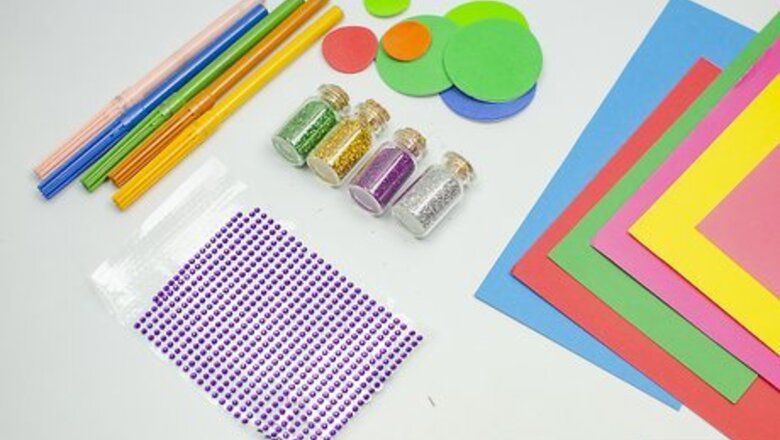
views
Making a Basic Greeting Card
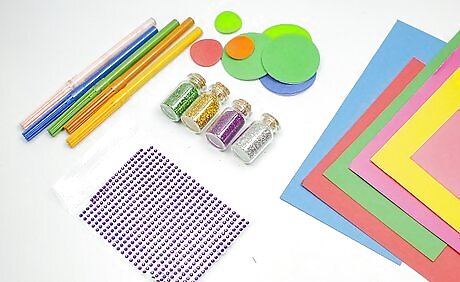
Gather your supplies. It's always helpful to have all your supplies laid out in front of your before you begin your project. This way you can stay focused without the interruptions that would otherwise occur as you had to search for new materials. Depending on what kind of greeting card you plan to make, you'll need glue, scissors or a paper cutter, paper or blank cards, envelopes, small decorations to put on the card, and a pen or pencil. Buy some materials at the store to start off with when making cards. You can also recycle things around the house. Items such as buttons, ribbon, and old belts, all look great when properly attached to cards.
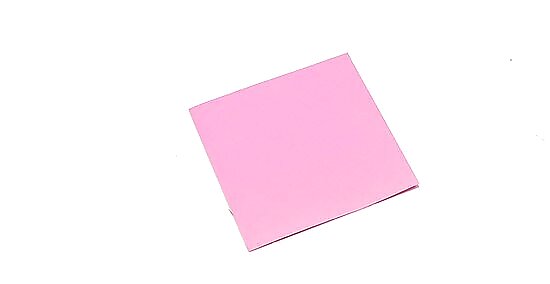
Take out a blank card, or fold a piece of paper in half. If you decide to use a piece of paper you have plenty of options. You can cut the paper down to a smaller size using a paper cutter, or even cut it into different shapes. Consider using construction paper if you want a tougher material or something more colorful. If you plan on cutting your paper with a paper cutter, use a ruler to define the lines before you start cutting. This will make it easier to keep everything straight and even.
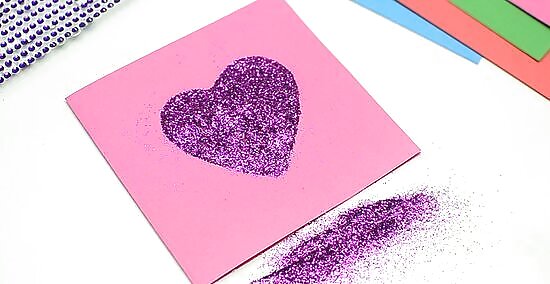
Add decorations to your card. You can have a lot of fun here. You can draw something running throughout the card, like a sea monster or a landscape. You could draw a scene in the daytime on one side, and another scene in the nighttime on the other side. If you know the person you're giving the card to, try to make something that would appeal to them. If you're just trying to make a general card, try to decorate the card in such a way that would match the theme of the greeting. For example, if you're making a birthday card maybe you should include cakes and balloons. Another option for decorating is to use scrap book materials or other craft items. You can cut out pictures from magazines and glue these into your greeting card.
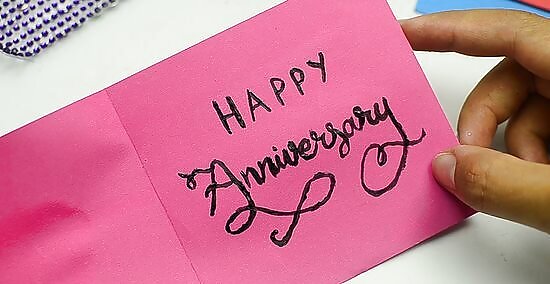
Consider the text you want to include. Most greeting cards have generalized text before you get into the personal greeting. You can skip this part if you want, but if you're trying to emulate a greeting card that you would find at a store, you might want to include some sort of greeting. Write something that matches the occasion. For example, you could write “Congratulations on your wedding and your many happy years ahead” for a newly married couple.
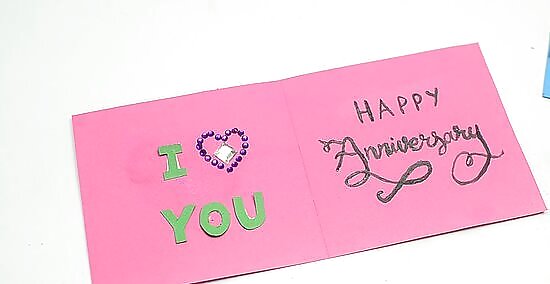
Try decorating your card with letter patterns. Take letters from newspapers or magazines of varying sizes and fonts and paste them around your card in a mix-matched manner. You could even choose to take your greeting from a line of text in a newspaper story.
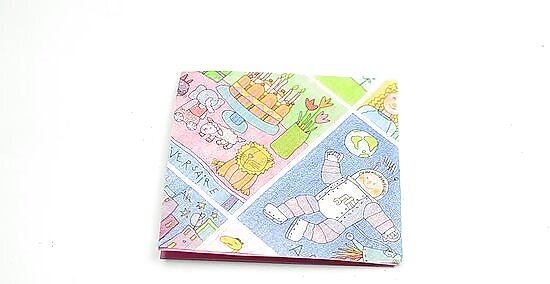
Use a distressed look. Buy some patterned paper and cut a piece about the size of your card. Now tear it in half diagonally so that you can see the tear running across the paper. Paste this torn piece of patterned paper on top of your greeting card to give it a unique distressed or vintage look.
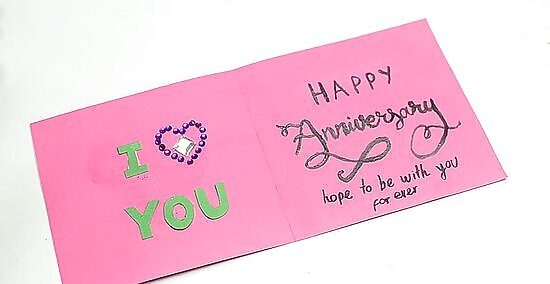
Include personalized text. The best part about a card is that it includes personalized writing. Generally this text wishes the person well and includes more detail. If you're making a greeting card to give to someone else so that they can write in it and give it as a gift, skip this step. Consider putting your signature on the back of the card so that the person it is being given to knows who made it.
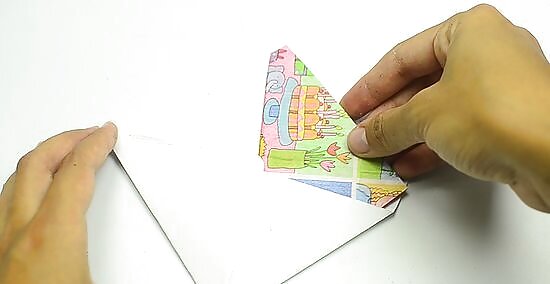
Find an envelope. Place the card in an envelope that fits the size of the card. If you're planning on giving the card away or writing in it immediately, you'll need the envelope eventually.
Making a Window Greeting Card
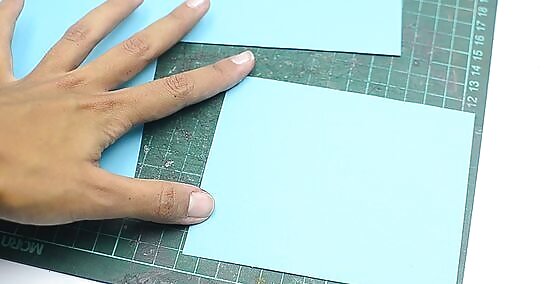
Cut a 4x5" rectangle out of thick double sided paper or cardstock. You can get double sided paper at any craft store. Don't use regular paper, it won't be strong enough to make this kind of greeting card.
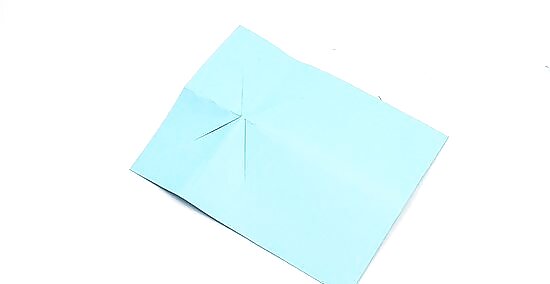
Make an opening. You can make an opening in your paper rectangle by folding the paper in half lengthwise. Now make another fold two inches from the top. Once you've done that, you need to draw a one-inch line from the corner of this fold at a 45 degree angle inward. Cut along that inch line. When you unfold the paper, you should be left with an 'X' cut in your original paper. The cut that you make will be going through multiple layers because of your folds to form this 'X'.
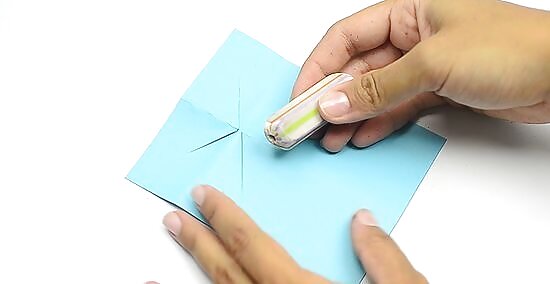
Smooth the fold lines. You should also erase the pencil mark at this time. You want to smooth the fold lines so that the card doesn't look bunched up and unprofessional.
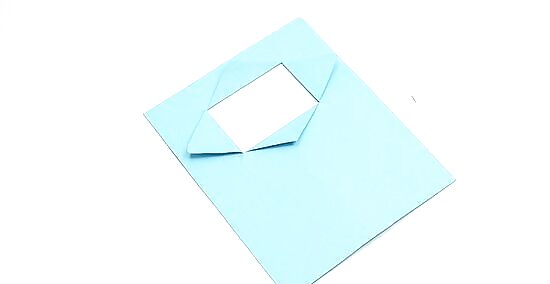
Fold the pieces of the 'X' cut back. Place the paper on its front side and take each triangle of the 'X' cut and fold it back toward you. There should be four triangle folds that leave you with a square window once you fold them back. Once you have folded the flaps back, glue them down.
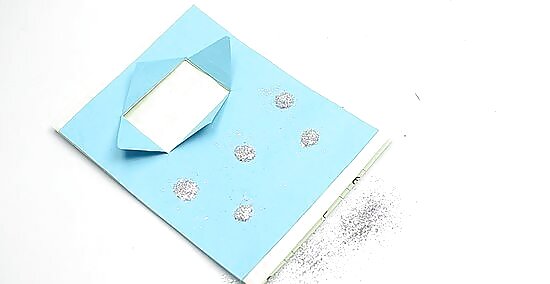
Add decorations as you see fit. You can now design an image to put inside the window, put a stamp in there, or anything else. Draw patterns or other elements on the face of the card for added personality.
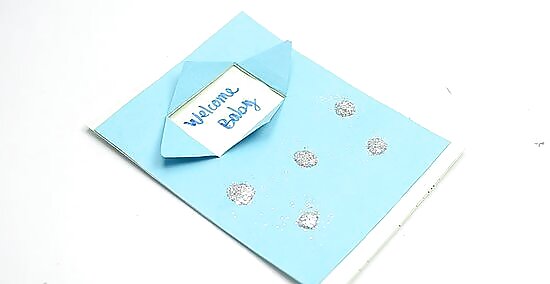
Add your greeting. If you want it to be a greeting card, you need to write something on the card that indicates what the event is. Make the theme of the card appropriate for this event. Birthdays, anniversaries, and marriages are all appropriate events for a greeting card.
Gluing Beads and Accessories
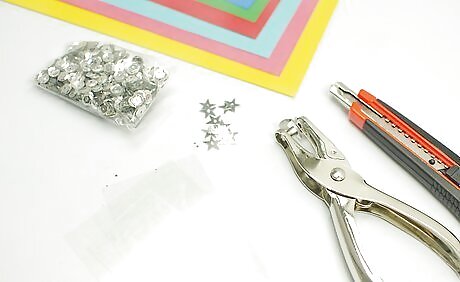
Find a die cutting machine and other materials. These shaker-like cards are slightly more difficult to make than other cards because you'll have to invest in a die cutting machine. You could also try to cut the shapes out manually but it is much more difficult to make them all exactly the same shape and size. Other materials include card stock, a paper cutter, a glue pen, craft glue, acetate, and filler material such as beads and sequins. All of these items can be purchased at a craft store.
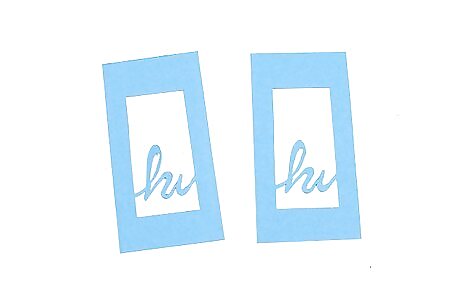
Cut your border shapes. Your shapes should have an empty space on the inside. For example, if you draw a circle, make the center hollow. Use your die cutting machine to cut the border shapes from the cardstock. Make sure they are all exactly the same size – you'll be placing some of the shapes on top of each other.
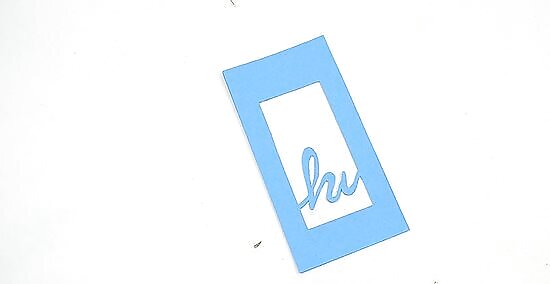
Glue your shapes to each other. For example, if you made circles you should put glue on the backside of one circle and then glue another circle to it. Continue to glue pairs of circles together until you have paired all your shapes.
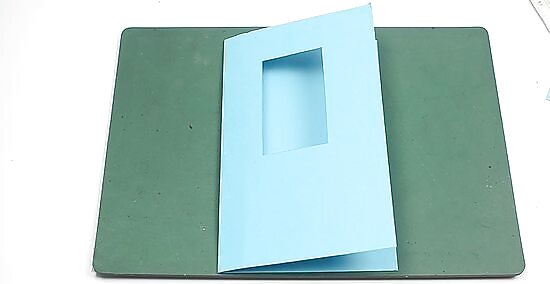
Cut the front of your card. The front of your card can be as large or small as you'd like, but a standard size is 3.75” width x 5” height. Remember to cut a hole in the card that fits your border shapes – the window should have the same diameter as your border shapes. Place glue around the edges of this window.
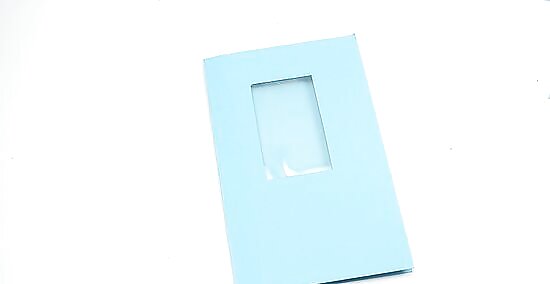
Place clear acetate over the window. The glue will hold down the clear acetate but you should make sure you cut it in the same shape as your border shapes too. The border shapes will sit on top of the acetate while your beads and other accessories will be glued directly on top of it.
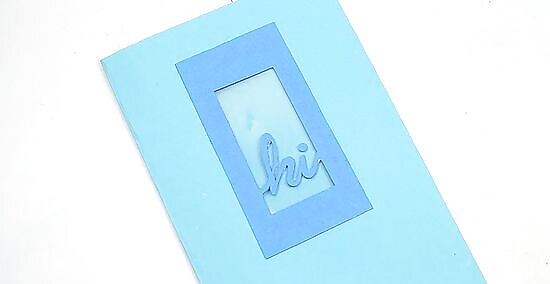
Place your border shapes on the card. Use the craft glue to glue your border shapes over the acetate. They should cover up the edges of the clear acetate but leave the middle of the shape see through.
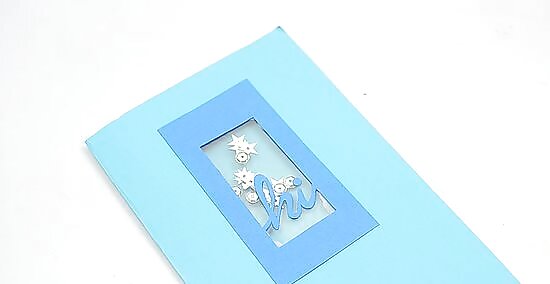
Fill in the window and add text. The window is the opening in your border shapes. Use your craft glue to add your beads and sequins to the acetate as you see fit. It will look like they are floating in thin air. Once you've finished the design aspect of the card you can begin to write a greeting.
Making Your Greeting Card on the Computer
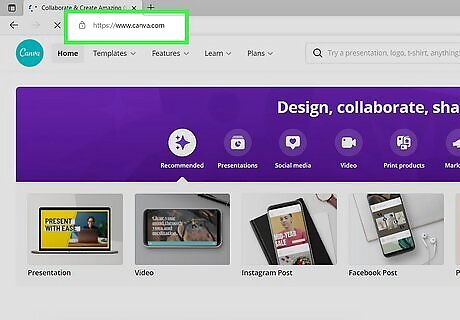
Choose your software. To make a greeting card on a computer, you'll need design software. The one you choose all depends on your skill level. There are some online card-making sites available that you can use, but most of them are of lower quality than downloadable software. Here, we're using Canva. Other software options include PageMaker or InDesign. If you're new to making greeting cards, try user-friendly programs like Art Explosion Greeting Card Factory or Hallmark Card Studio. Software like Microsoft Word usually has greeting card templates, which can be helpful. To make a greeting card on a Mac, use Pages. If you are wondering how to make a greeting card on an iPhone, try downloading an app like Cardstore Greeting Cards or Ink Cards.
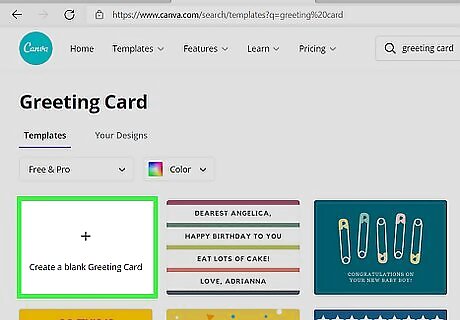
Choose your layout. If you’re using greeting card software, head to the layout menu to pick the one that you want. Pick one that matches the theme and style you’re going for so that you don’t have to change it too much. Most greeting card templates have a set color palette, but you can usually mess around with that by going into the settings. If you’re designing your greeting card from scratch, set it up so you can print it on one sheet of paper and then fold it in half. The size and the shape is up to you!
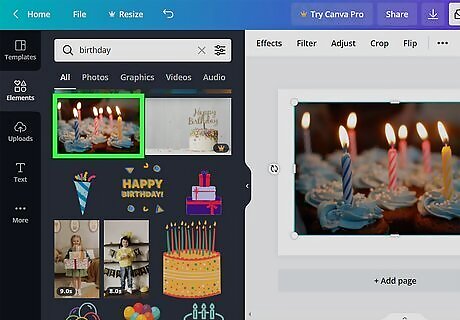
Add some graphics. The great thing about making a greeting card on a computer is that you can include all sorts of graphics! Try searching through clip art on the computer or scrolling through your camera roll to personalize your card. Then, insert the photo and resize it to fit the area you want it to be. For instance, you might add balloons to a birthday card, flowers to a card you’re sending in the spring, or snowflakes for a card you’re sending in the winter. If you want the picture to take up the whole card, make it the background.
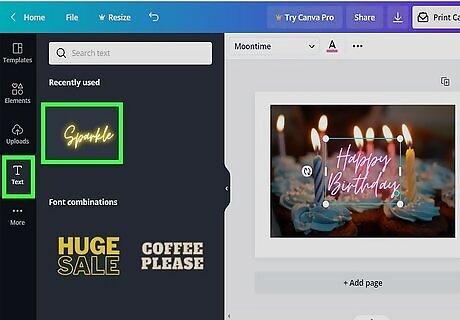
Pick out your font. Most computer and phone programs have tons of different fonts to choose from. You could try bubble font to be fun and whimsical, cursive font to be a little more fancy, or plain, easy-to-read font for something simple.Use a large, easy-to-read font for the primary message and a smaller, complementary font for anything else you want to say inside the card. Your font can say a lot about your message—for instance, you probably don’t want to use a super formal font to send a greeting card to a young child.
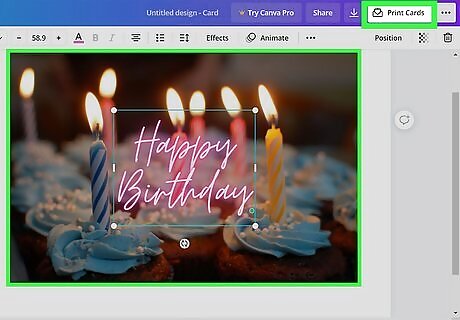
Print your card. You can use printer paper if that’s all you have, or you can load your printer with cardstock to make your greeting card a little thicker. Print it out using a color printer so your photos and your text show up together. Fold the card in half, then write your message on the inside before sending it out! White paper is the easiest paper to use for your greeting card, but you could also mix it up by using some fun colors. If you don’t have a printer at home, visit a print shop to print out your card for a small fee.



















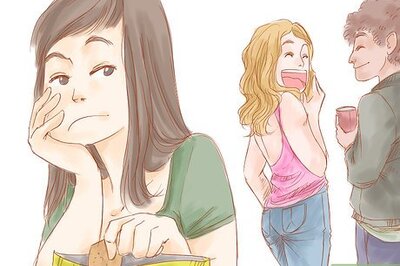
Comments
0 comment